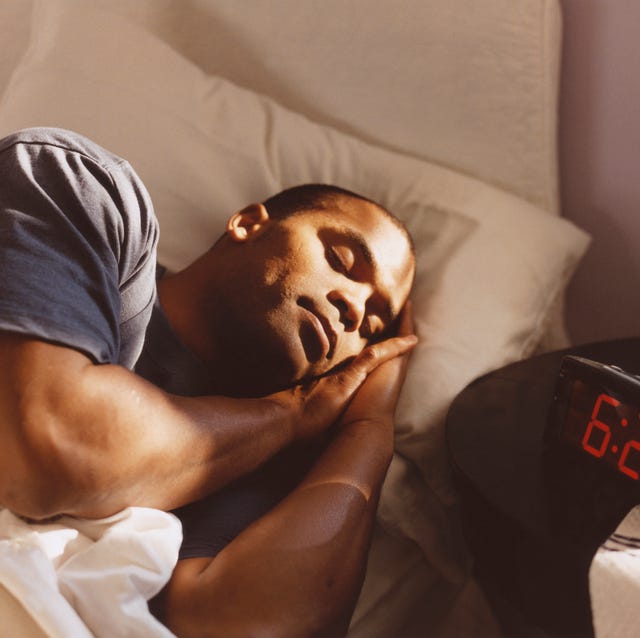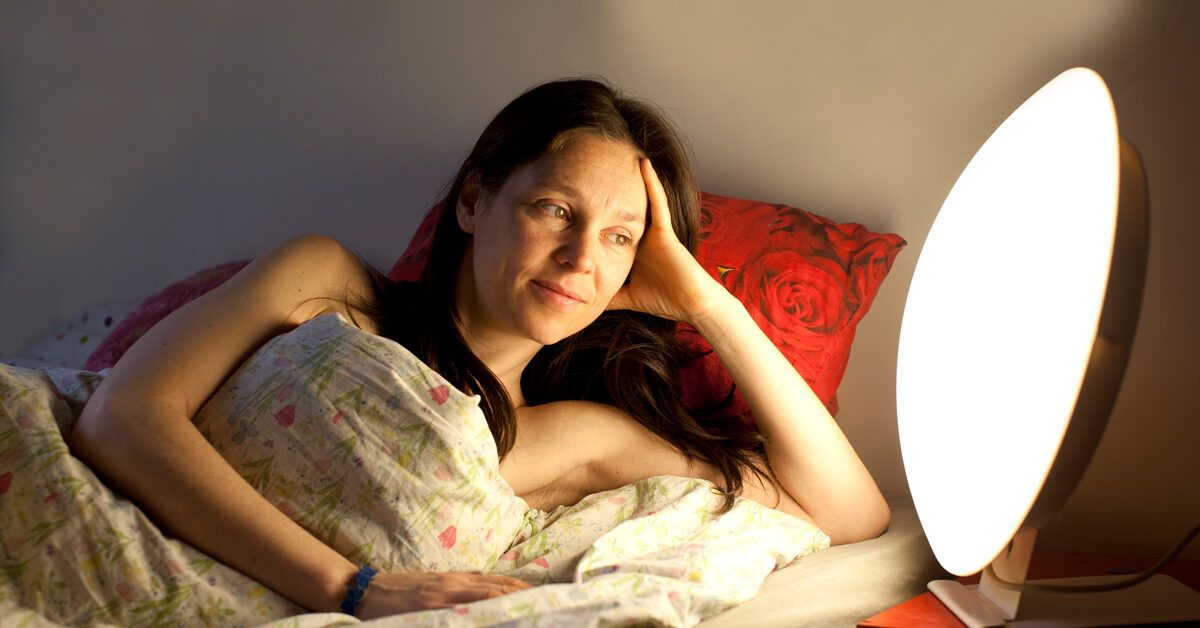Sleep Deprivation Help - Overcome Fatigue and Improve Health And Wellness
Wiki Article
Reliable Therapy Solutions for Handling Sleep Disorders and Enhancing Relaxing Sleep
In the world of health care, the monitoring of sleep conditions and the mission for restful sleep are crucial components of total well-being. As we navigate the complex landscape of rest conditions and seek to boost our sleep experience, a much deeper understanding of these therapy solutions may hold the trick to opening a more rejuvenating and satisfying corrective trip.Cognitive Behavioral Therapy for Sleeping Disorders (CBT-I)
Cognitive Behavioral Therapy for Insomnia (CBT-I) is a structured, evidence-based therapy method that concentrates on dealing with the underlying variables adding to rest disruptions. This kind of treatment intends to change behaviors and thoughts that aggravate sleeplessness, inevitably advertising healthy and balanced rest patterns. CBT-I generally includes a number of crucial parts, consisting of cognitive treatment, sleep restriction, stimulus control, and rest health education.Cognitive therapy assists individuals determine and transform unfavorable thought patterns and beliefs concerning rest that might be impeding their ability to drop or stay asleep. Rest limitation includes limiting the amount of time spent in bed to match the individual's actual sleep period, thereby increasing rest performance (sleep improvement therapy). Stimulation control methods help develop a strong association between the bed and sleep by motivating individuals to go to bed just when drowsy and to avoid participating in promoting activities in bed
Additionally, rest hygiene education concentrates on establishing healthy rest behaviors, such as preserving a consistent sleep timetable, creating a relaxing going to bed regimen, and optimizing the sleep atmosphere. By resolving these aspects thoroughly, CBT-I provides an efficient non-pharmacological intervention for taking care of sleeping disorders and improving general sleep top quality.
Rest Hygiene Practices
Having actually developed the structure of cognitive restructuring and behavior adjustments in attending to sleep problems through Cognitive Behavior modification for Sleeping Disorders (CBT-I), the emphasis currently changes in the direction of checking out important Rest Health Practices for maintaining optimal sleep quality and overall well-being.Rest hygiene methods include an array of practices and environmental variables that can significantly influence one's ability to drop off to sleep and remain asleep throughout the night. Constant sleep and wake times, producing a relaxing bedtime routine, and maximizing the rest setting by keeping it dark, silent, and cool are crucial components of great sleep hygiene. Restricting exposure to displays before bedtime, avoiding energizers like caffeine near to bedtime, and taking part in regular exercise throughout the day can also promote much better sleep top quality.
In addition, exercising leisure strategies such as deep breathing workouts or meditation prior to bed can help calm the mind and prepare the body for rest. By incorporating these sleep hygiene methods into one's daily routine, people can establish a healthy sleep pattern that supports restful rest and overall wellness.
Relaxation Strategies and Mindfulness
Implementing relaxation strategies and mindfulness practices can play an essential duty in fostering a feeling of tranquility and advertising quality sleep. sleep improvement therapy. These techniques aim to quiet the mind, decrease stress and anxiety, and develop an optimal atmosphere for peaceful rest. One commonly practiced approach is deep breathing workouts, where individuals concentrate on slow, deep breaths to relax the body and mind. Progressive muscular tissue leisure includes tensing and then releasing each muscle group, promoting physical leisure. Additionally, directed imagery can aid carry individuals to a tranquil area in their minds, assisting in tension decrease and enhancing rest quality.By look at here including these techniques right into a going to bed regimen, people can signal to their bodies that it is time to loosen up and prepare for sleep. In general, integrating relaxation strategies and mindfulness techniques can considerably contribute to handling sleep problems and improving overall rest quality.

Medication Options for Rest Disorders
After discovering relaxation strategies and mindfulness practices as non-pharmacological treatments for boosting sleep quality, it is important to think about medicine choices for people with rest conditions. In instances where way of life modifications and therapy do not supply sufficient relief, medicine can be an important device in managing sleep disturbances.
Commonly prescribed drugs for sleep problems include benzodiazepines, non-benzodiazepine hypnotics, antidepressants, and melatonin receptor agonists. Benzodiazepines, such as diazepam, are sedatives that can assist induce sleep, but they are normally suggested for temporary use because of the risk of dependence. Non-benzodiazepine hypnotics like zolpidem are additionally used to deal with sleep problems and have a reduced risk of reliance contrasted to benzodiazepines. Antidepressants, such as trazodone, can be advantageous for people with co-occurring depression and rest disturbances. Melatonin receptor agonists, like ramelteon, target the body's all-natural sleep-wake cycle and can be valuable for controling rest patterns.
find out here now It is important for people to seek advice from a healthcare copyright to identify the most proper medication alternative based upon their specific sleep disorder and clinical history.
Light Treatment for Body Clock Policy
Light treatment, additionally understood as phototherapy, is a non-invasive therapy technique made use of to regulate body clocks and boost sleep-wake cycles. This treatment involves direct exposure to bright light that simulates all-natural sunshine, which assists to reset the body's interior clock. By exposing people to specific wavelengths of light, generally in the morning or evening relying on the desired impact, light therapy can efficiently adjust the body clock to advertise wakefulness throughout the day and enhance peaceful rest in the evening.Research study has revealed that light treatment can be particularly beneficial for individuals with circadian rhythm problems, such as postponed rest stage disorder or jet lag. It can also be valuable for those experiencing seasonal depression (SAD), a kind of clinical depression that usually happens throughout the wintertime months when natural light exposure is reduced. Light treatment is typically well-tolerated and can be utilized combined with other treatment approaches for rest problems to maximize results and improve total rest high quality.
Conclusion
Finally, efficient treatment solutions for managing rest problems and enhancing peaceful sleep consist of Cognitive Behavior modification for Sleep Problems (CBT-I), sleep health methods, leisure strategies and mindfulness, medicine alternatives, and light treatment for circadian rhythm law. These strategies can help people improve their rest high quality and overall health. It is essential to talk to a health care service provider to establish one of the most ideal technique for dealing with rest concerns.
As we browse the elaborate landscape of rest conditions and look for click here now to boost our sleep experience, a deeper understanding of these treatment remedies might hold the key to unlocking an extra rejuvenating and satisfying restorative journey.
Sleep limitation involves limiting the quantity of time invested in bed to match the person's real rest period, consequently raising sleep effectiveness. Constant rest and wake times, developing a relaxing bedtime routine, and enhancing the rest environment by maintaining it dark, peaceful, and cool are essential parts of great sleep hygiene. Light treatment is normally well-tolerated and can be made use of in conjunction with other therapy approaches for rest disorders to enhance results and enhance total rest top quality.

Report this wiki page